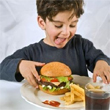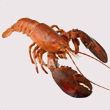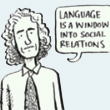Tuesday, 24 December 2013
Junk Food and Alzheimer’s: Closer Links Than Once Believed
 For most parents, packing their kids’ school lunches in the morning may seem like just a routine task, but it turns out to be a really important one. Not only can it influence children’s future eating habits, but it may also have a major impact on their quality of life when they are old enough to be grandparents themselves.
For most parents, packing their kids’ school lunches in the morning may seem like just a routine task, but it turns out to be a really important one. Not only can it influence children’s future eating habits, but it may also have a major impact on their quality of life when they are old enough to be grandparents themselves.
Or at least that’s what many recent studies on Alzheimerb s-type dementia seem to suggest. What’s the connection? Children may be more likely to develop obesity and diabetes—established risk factors for Alzheimer’s—if their parents fill their lunch bags with junk food because it’s easier than arguing with them about the virtues of eating a balanced diet! (more…)
Monday, 9 December 2013
Links About Our Evolutionary Inheritance
 This week, as we have before in this blog, we are posting a set of links to pages on other web sites that discuss a subject covered in The Brain from Top to Bottom, along with brief descriptions of the content of those pages.
This week, as we have before in this blog, we are posting a set of links to pages on other web sites that discuss a subject covered in The Brain from Top to Bottom, along with brief descriptions of the content of those pages.
The subject this week is the sub-topic “Our Evolutionary Inheritance”, under the topic “Evolution and the Brain”—an important topic indeed, for as the geneticist Theodosius Dobzhansky (1900-1975) wrote, “Nothing in biology makes sense except in the light of evolution.” And when it comes to neurobiology, that assertion is especially apt. (more…)
Evolution and the Brain | Comments Closed
Monday, 25 November 2013
Rhythms, Pain and Consciousness in Invertebrates

This week we’d like to offer you a sort of “seafood cocktail”: links to discussions of three fundamental questions of neurobiology, as investigated using three different kinds of marine invertebrates: lobsters, crabs, and Aplysia (sea slugs).
The first link below is to an article that discusses the many rhythmic activities that can be observed in nervous systems, and in particular in that of the lobster. (more…)
Pleasure and Pain, The Emergence of Consciousness | Comments Closed
Friday, 15 November 2013
Language as a Window into Human Nature

In previous posts in this blog, we have drawn your attention to various lectures in the RSA Animate series, in which experts is a variety of fields give online talks while cartoon illustrations are drawn in sped-up fashion to accompany their voice-over. This week we’d like to tell you about another RSA Animate lecture. This one is about language, and it is given by Harvard cognitive psychologist Steven Pinker. (more…)
From Thought to Language | Comments Closed
Monday, 28 October 2013
Christof Koch, a Romantic Reductionist

Just in case the 2012 Summer School on the Evolution and Function of Consciousness in Montreal did not quench your ravenous thirst for knowledge on the subject, I am providing a link below to a recent Brain Science Podcast interview with Christof Koch, another great name in consciousness research.
Author of the book Confessions of a Romantic Reductionist, Koch argues that we are no longer confined to philosphical speculation about human consciousness, but instead can now make predictions and test them experimentally. (more…)
The Emergence of Consciousness | Comments Closed







